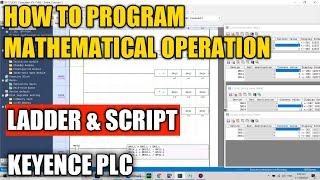
Multiply Soloing Options with One Simple Trick
Комментарии:

Very interesting. Thanks 🎉
Ответить
You explain it very well, thank you. I like the smooth jazz style!
Ответить
I monkeyed around with this an realized these are just the modes! Example: for C major A minor 7 is simply C Lydian. E minor E Aeolian is C Lydian. Correct? So really just saying play C Lydian???
Ответить
Nice informative. I see jazz style. You sound like benson.
Ответить
Great stuff Steve. Hey, is that the same guitar you used when you taught a live video lesson on Blue Bossa some years back?! I love that video, but I can't find it anymore. Is there a link for it, or is it no longer available online?
Ответить
Groove baby boy.
Ответить
Nice lesson. Wishing you well from Asia.
Ответить
Amazing lesson. is there a backing track for this lesson.
Ответить
confused... C is made up of C-E-G. But you chose to pay Em7 licks over C... Would Emajor or Eminor licks work too? And how come Am works over C if C isn't made up of A. I'm a self taught guitarist and every time I dabble in theory this stuff confuses the heck out of me...
Ответить
Cool idea.
Ответить
Sir your affects and teaching style is awesome please make bunch of videos to help who can't spend money to learn music like me
Ответить
🚩Great To See You!! So happy your keeping on. Thanks for continuing to HELP US!
Ответить
I been onboard with you steve since I bought the learn and master CD set abs worth book back in 2012...
Ответить
Great lesson! May I toss in what might be a helpful hint from a keyboardist who doubles on guitar? The principles you're sharing here are REALLY easily visualized on the KEYBOARD & I mention it because C happens to be SO handy for this idea of "expanding" the chord, or building triads & even larger chords ON THE CHORD TONES as you move up through a C triad. A great thing for guitarists to keep handy in their mind's eye is a mental photo of a an octave or two on piano. Great jazz guitarists have said it, & horn players, too. The keyboard is a "picture of music theory & the construction of chords & scales." C is the clearest picture, too! GOOD CHOICE! Thanks for your time!
Ответить
Great musically info 👍🙏
Ответить
Thank you Steve,a great lesson for sure.
Ответить
5* Video Great Sound though a IPad Pro . You must have very good Gear . This is a lot of Fun practice .
Ответить
Hi, It's Brandon here from South Africa. Great lesson - thank you. Quick Question: Are licks played over the actual Chord? e.g. C or Am chord? or are these licks played over any chord in the actual key? e.g. a song in the key of C or the Key of Am?
Ответить
Very useful)
Ответить
Love it, thanks 🇫🇷👍🏼🍒
Ответить
IMHO, these are not just some "tricks", Steve. This is SOLID advice, in a readily digestible form.
Thank you, Sir!

Thank you Steve, another great lesson with immediate application.
Could you let us know how do you get that sweet tone? I suppose your guitar volume is turned way down and your amp reasonably high? Tone knob about 5/6?
Thanks a lot and hope you are now 100% recovered!
Cheers!

NICE LES PAUL!!
Ответить
Thanks, Steve. You're a great teacher.
Ответить
Thanks Steve!! This is a really good lesson. Really sweet looking Les Paul! Sorry to hear about the weather. In the 80's and sunny as can be in San Jose Costa Rica, upper 80's on the beaches!! Ex Detroit born and raised so I understand what you are going through.
Ответить
For the dominant, it’s the Family of Four from Sheryl Baileys Bebop Guitar Course of the same name.
C7 is the national dominant (5 chord) from the key of F. So if we understand the concept of the ii-V chord progression, Gm7 is the ii chord from the same key. Both the ii chord ( Gm7) and the IV chord (BbMaj7) can preceded the dominant and are called pre-dominants and, alternately, subdominants (functionally). Add to this that the chord on the 3rd of the dominant (7th scale degree, Em7b5). Is actually a rootless C9 and a great substitute for C7 and functions as a dominant, as does C7, we conclude:
Each note of a dominant chord is the root of either a dominant function chord (V, vii) or a pre-dominant.(ii, IV).
So .... From the key of F (the key with one flat) :
C - C7 (V)
E - Em7b5 (vii)
G - Gm7 (ii)
Bb - BbMaj7 (IV)

So .... over a C major, play C pentatonic, Am pentatonic, G pentatonic, Em pentatonic.
Am is a 3rd below C and Em is a 3rd Above C.
C pentatonic = Am pentatonic
G pentatonic = Em pentatonic

Thanks Steve, great lesson! Please can you share your recording / video setup details? Thanks!
Ответить

























